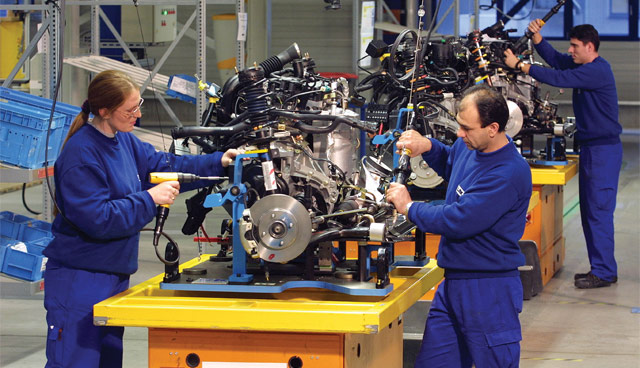Skills plan looks to create 2,300 jobs

In order to facilitate the kind of job growth included in local planning, as seen in the Mid Ulster Local Development Plan, Mid Ulster District Council have developed a Skills Action Plan for 2018-2021 with the goal of improving “linkages between education and business sectors and help address the critical skills gaps which exist”.
The Council also says that the Skills Action Plan will enhance job opportunities and prospects, encourage workforce development and training, and help local businesses prepare for Brexit. The five strategic priorities as outlined by the plan are:
- Attract – to attract external talent and residents to the Mid Ulster area;
- Develop – to develop the skills businesses need to address gaps;
- Engage – to improve how businesses engage with key stakeholders;
- Retain and sustain – to ‘future proof’ skills and capability; and
- Success – to implement the Strategy and Action Plan and measure success in tangible metrics.
The plan outlines that the attraction of external people into the Mid Ulster District will be done through four key actions: improvement of the market proposition for the area; boosting of the image of the so-called priority sectors; development of the connectivity to, and within, the area; and supporting of new job creation. These goals are to be worked towards with activities such as the development of a new marketing strategy for the District, promotional campaigns across the Mid Ulster area and Northern Ireland for the manufacturing and engineering, food and agri-food, construction, ICT, and retail sectors, new initiatives to promote and redress the gender imbalance towards females, and, most significantly, the creation of 2,300 jobs.
The aim for these measures is to give the area a larger working age population, improve the perception of local employment sectors and provide the impetus for greater connectivity and accessibility in the area. The improvement of roads mentioned in the Local Development Plan such as the A29 and A31, and the provision of a Cookstown/Dungannon bypass, will provide for greater accessibility in the area.
Plans to shorten the skills gap currently in Mid Ulster include the establishment of a ‘brokerage scheme’ with the Department for the Economy, similar to the scheme implemented for the ICT sector in the Greater Belfast area. This would involve DfE “scheduling and facilitating meetings with businesses (within each of the Council’s six priority sectors) to stimulate demand for apprenticeship schemes – focusing apprenticeships on the specific needs of businesses”.
The Council will also support a 10 per cent increase in the number of people in the area participating in apprenticeships under the Apprenticeships NI Framework, starting from July 2017’s baseline position of 919. In order to develop additional engagement with Mid Ulster’s key employment sectors, sectoral sub-groups of the Mid Ulster Skills Forum has been founded, and a manufacturing and engineering growth and advancement (MEGA) network of businesses established to address skills shortages and employability within the region’s manufacturing and engineering sectors.
To aid with retention and sustainability, the Council is set to explore the possibility of the development of an advanced manufacturing and engineering innovation centre in the area in conjunction with South West College and other stakeholders. A key goal within the plan is the provision of support for 80 per cent or more of business respondents indicating that their annual rate of staff turnover is, by 2021, 5 per cent or less from a baseline position of 71 per cent in July 2017.





